Nabila Rifo: Chile court cuts jail term of attacker
- Published
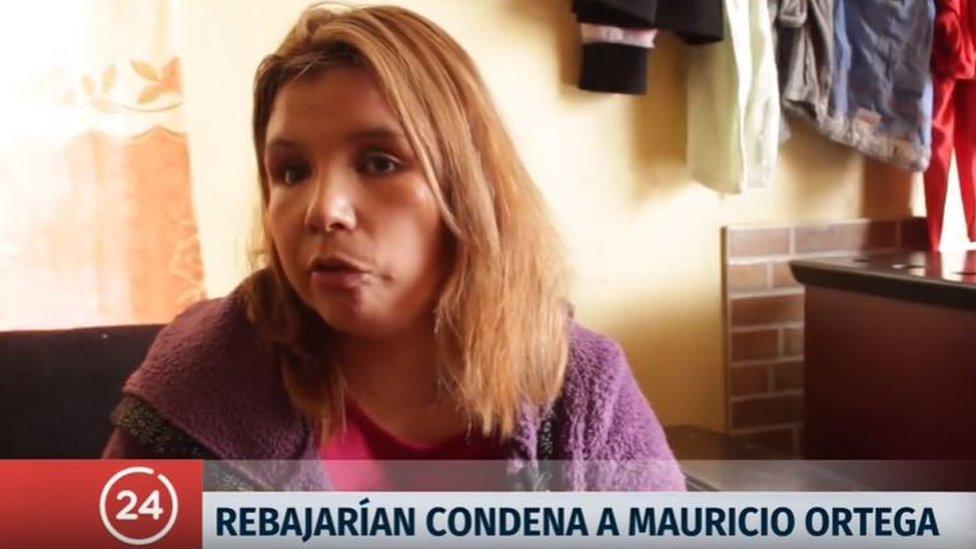
"It would be mockery of me if they reduced the sentence," Nabila Rifo had told Chile's 24 Horas news show
Chile's Supreme Court has sparked an outcry after reducing the sentence of a man who blinded his partner in a notorious case.
Mauricio Ortega had his term shortened from 26 to 18 years.
The court ruled he was not attempting to kill Nabila Rifo when he attacked her.
He beat Ms Rifo until she passed out. Then he gouged out her eyes and left her in the street, where she suffered hypothermia.
The ruling sparked a protest outside the Supreme Court on Tuesday and the story has been trending on Chilean social media, with thousands drawing attention to what they see as an unjust decision.
The Minister for Women's Rights and Gender Equity, Claudia Pascual, told reporters she accepted the court's decision, but did not agree with it.
"When one person strikes another with injuries as serious as is the case of Nabila, it is difficult to think that there was not an intention to kill," she said.
The attack on Ms Rifo in southern Chile last year became a huge symbol of the country's uphill battle against domestic violence.
After she was found in a bloodied heap on a road in Coyhaique, shocked neighbours held a protest calling for "respect and justice".
News spread and soon there were sister demonstrations, 1,500km (900 miles) further north in the capital, Santiago.
President Michelle Bachelet visited her in hospital and when Ortega was sentenced in May 2017, she said justice had been served. "It is fundamental that the country defends women against violence," she tweeted, external.
Ortega was found guilty of causing serious injury and "attempted femicide" (a legal term in the country, meaning the killing of a woman because of her gender).
However, his defence lawyer, Ricardo Flores, then launched a fight for a retrial in order to reduce the sentence.
Mr Flores said last month: "From the legal point of view, it would have been simpler to have killed her than simply to have left her alive."
President Bachelet tweeted on 21 June, external: "Outrageous statements from the lawyer of Nabila Rifo's attacker. They stem from deep violence. This can not be tolerated."
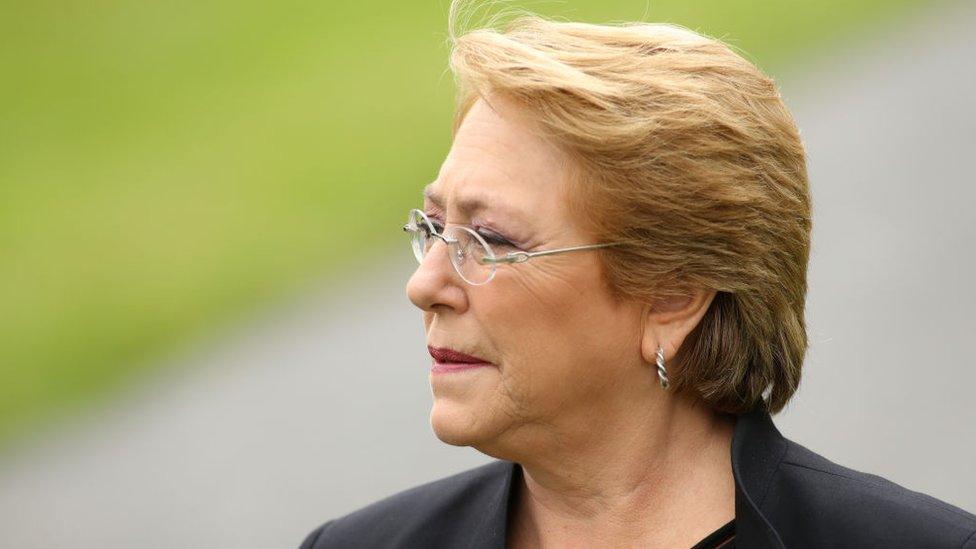
Chile's President Michelle Bachelet expressed outrage over the case
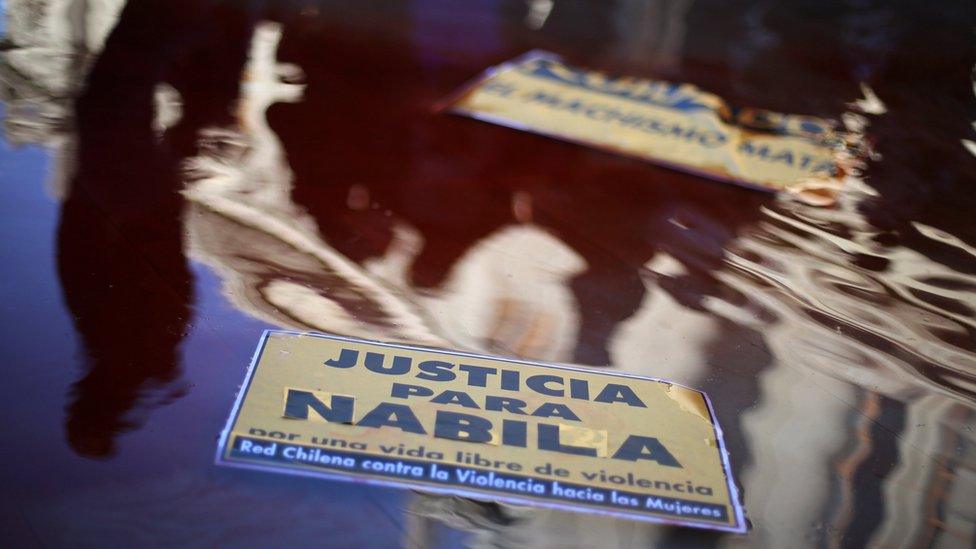
A sign at a protest in Chile reading "Justice for Nabila, for a life free from violence"
The court rejected the appeal for a retrial, but reduced the jail time after overruling the prosecution for "attempted femicide".
Francisca Junemann, lawyer and co-founder of the Fundación Chile Mujeres (Chile Women's Foundation) told the BBC the problem hinged on finding evidence he had the intention to kill.
During the trial, Ms Rifo, then 28, told the court: "He harassed me for every little thing, for the food that I cooked 'badly'. He told me I was a whore. Sometimes he even dragged me down the stairs."
Ortega is the father to two of her four children.
She told the Chilean press she had shared her story as an example to others.
In a Facebook video statement, external before the Supreme Court's decision was made, she thanked people for their support and expressed a wish for an outcome that showed women were valued as much as men.
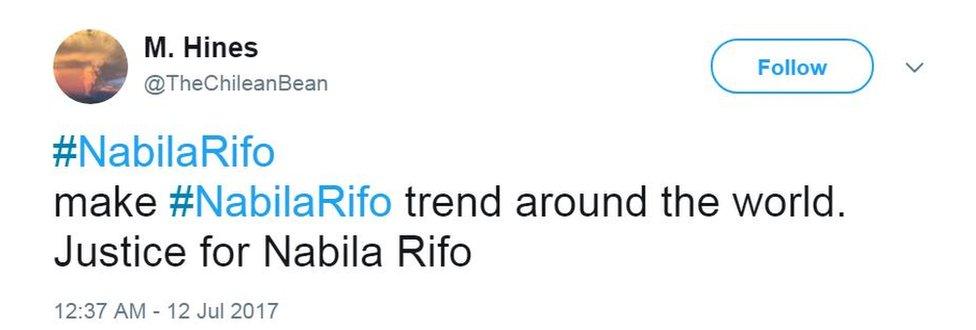
Both #NabilaRifo and #NabilaRiffo have trended on Twitter in Chile
On Twitter, some people expressed frustration that the story was being overshadowed by news that Chilean footballer Alexis Sánchez had a new girlfriend.
The verdict is not open to appeals.
- Published10 May 2017
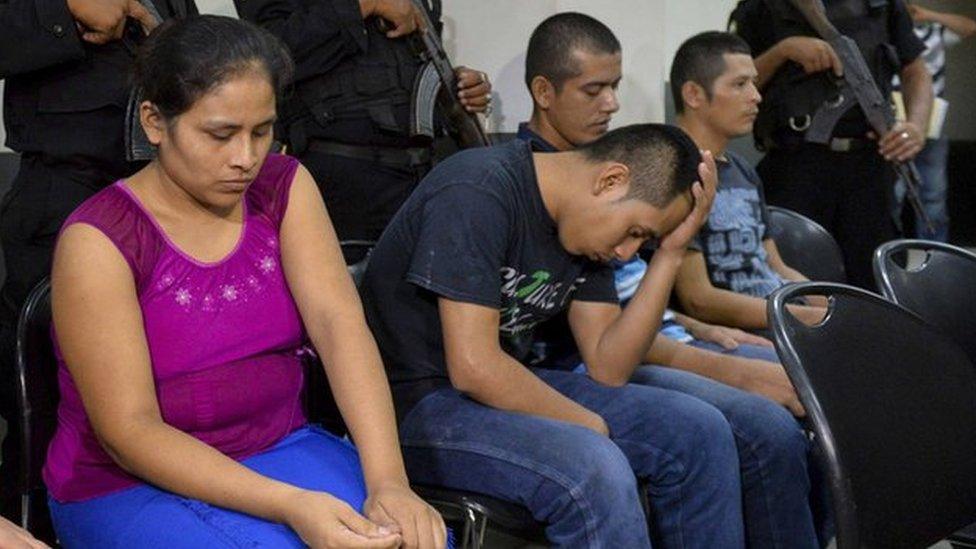
- Published4 June 2015
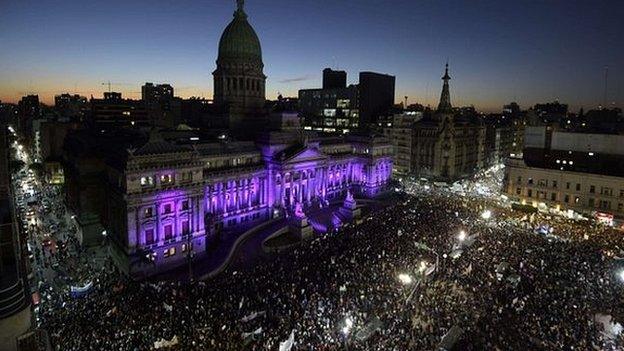
- Published20 October 2016